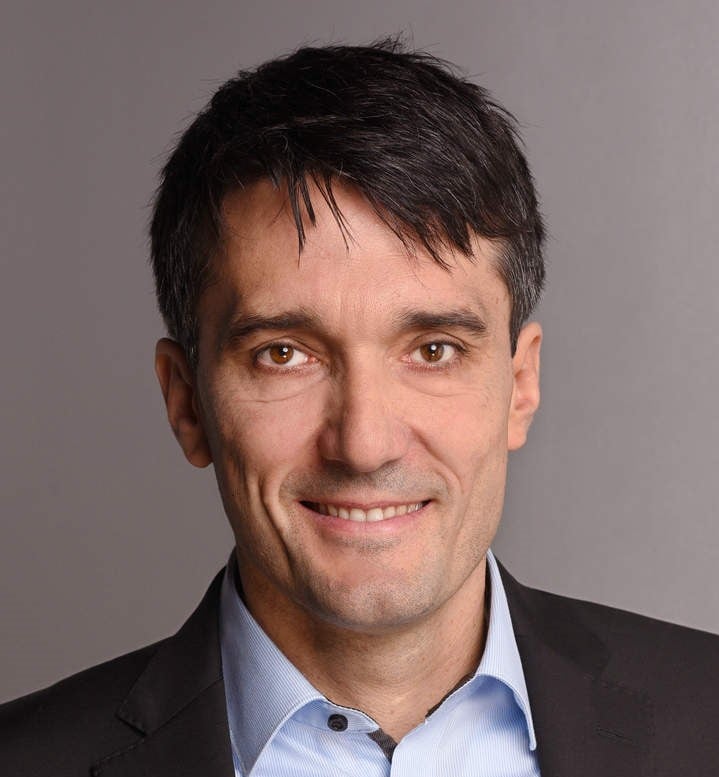Interview with…
Dr. Joel Nägerl, German and European Patent Attorney

Dr. Joel Naegerl shares how Zimmermann & Partner’s deep industry knowledge, strategic focus, and client-first approach continue to deliver value for its clients.
What do you see as the main points that differentiate Zimmermann & Partner Patentanwälte mbB from your competitors?
At Zimmermann & Partner our extensive work with international clients gives us, as patent attorneys, a distinctive edge. We manage a particularly large volume of high-profile litigation cases, providing us with exceptional insight into national and international litigation contexts and a deep understanding of what clients need. This familiarity allows us to handle cases with efficiency and precision, ensuring alignment with the clients’ broader business and technological objectives.
Our expertise goes beyond legal knowledge. Most importantly, we have a comprehensive and profound understanding of the underlying technology and industry landscape. This enables us to anticipate challenges, optimize case management, and provide strategic guidance that is both legally robust and commercially impactful. By combining legal acumen with technical depth, we offer our clients a level of service that extends beyond traditional legal counsel and is sought after even for foreign litigation contexts.
A key differentiator is the strong personal relationships we build with our clients and within our team, which helps create an atmosphere of trusting cooperation, to which all team members contribute with their best efforts and capabilities. While we appreciate the value of video conferencing, we recognize the importance of face-to-face meetings in strengthening trust, improving communication, and encouraging open discussions - all of which enhance productivity and contribute to successful outcomes.
Which practices do you see growing in the next 12 months? What are the drivers behind that?
We have been entrusted with handling numerous new litigation cases this year, reflecting the broader trend of patent litigation becoming increasingly important. One key driver is the emergence of the new Unified Patent Court system, which has introduced new litigation strategies in Europe. Additionally, the number of non-producing entities (NPEs) has grown in recent years, indicating that substantial financial resources are being directed toward investments in the secondary patent market - further driving litigation activity.
What's the main change you've made in the firm that will benefit clients?
One of the key improvements I have implemented is a more structured approach to information management within the team and with the client. Given the sheer volume of communications circulating in our field, I make a conscious effort to shield team members from unnecessary distractions by filtering and disseminating only the relevant and actionable information. This allows them to remain focused on their core work without being overwhelmed or side-tracked by a constant influx of updates.
With regard to the client, I strive to keep communications concise, avoiding unnecessary questions while clearly flagging the important ones. This approach helps clients focus their resources on what truly matters. As a result, our team operates faster and with greater efficiency and precision. By prioritizing clarity and focus, we drive better outcomes for our clients.
Is technology changing the way you interact with your clients, and the services you can provide them?
While video conferencing has made communication more convenient, it has not fundamentally changed the way we interact with our clients or the services we provide. Nothing can replace the value of in-person meetings, particularly when handling complex and high-stakes cases. Face-to-face discussions foster stronger relationships, encourage more dynamic problem-solving, and enable a level of creativity that is difficult to replicate in a virtual setting. Sometimes, it is the silence in these discussions that creates the moment where a new creative thought emerges.
As for AI, while it has not yet had a direct impact on my day-to-day work, I recognize its potential to contribute to the field in the future. As AI tools evolve, they may enhance certain aspects of legal research and case management. However, the core of our work - strategic thinking, advocacy, and client relationships - will always rely on human expertise.
Can you give us a practical example of how you have helped a client to add value to their business?
There have been cases where we identified a key piece of prior art that significantly impacted the patentability of a claim asserted against our client, as well as cases where we established a subtle line of technical argument that had not been previously considered by the opposing party. By taking a comprehensive approach - analyzing both prior art and the legal and technical arguments with regard to both the validity of the patent and its potential infringement while finding a good balance between these aspects - we have repeatedly developed highly successful strategies.
This approach has proved highly effective, as litigation disputes often conclude with settlement agreements. With our contributions, these settlements have frequently resulted in far more favorable outcomes than initially expected.
Are clients looking for stability and strategic direction from their law firms - where do you see the firm in three years’ time?
International clients of ours, such as Samsung, highly value continuity and stability, particularly in complex, high-stakes matters. Over time, we have developed a deep understanding of our clients’ specific needs, expectations, and the broader technological landscape in which they operate. Our clients appreciate not only our technical and legal expertise but also, the efficiency and thoroughness with which we handle their cases. Our ability to anticipate challenges and provide strategic guidance gives them confidence that their matters are in capable hands.
Looking ahead, I see our firm continuing to strengthen these relationships by maintaining the high level of service and insight that our clients rely on. As patent litigation and prosecution become increasingly complex, our focus will remain on refining our expertise, streamlining processes, and ensuring that we provide even greater value through efficiency and strategic foresight. While technology and legal frameworks will continue to evolve, the fundamental principles of trust, consistency, and deep client understanding will remain central to our approach.
